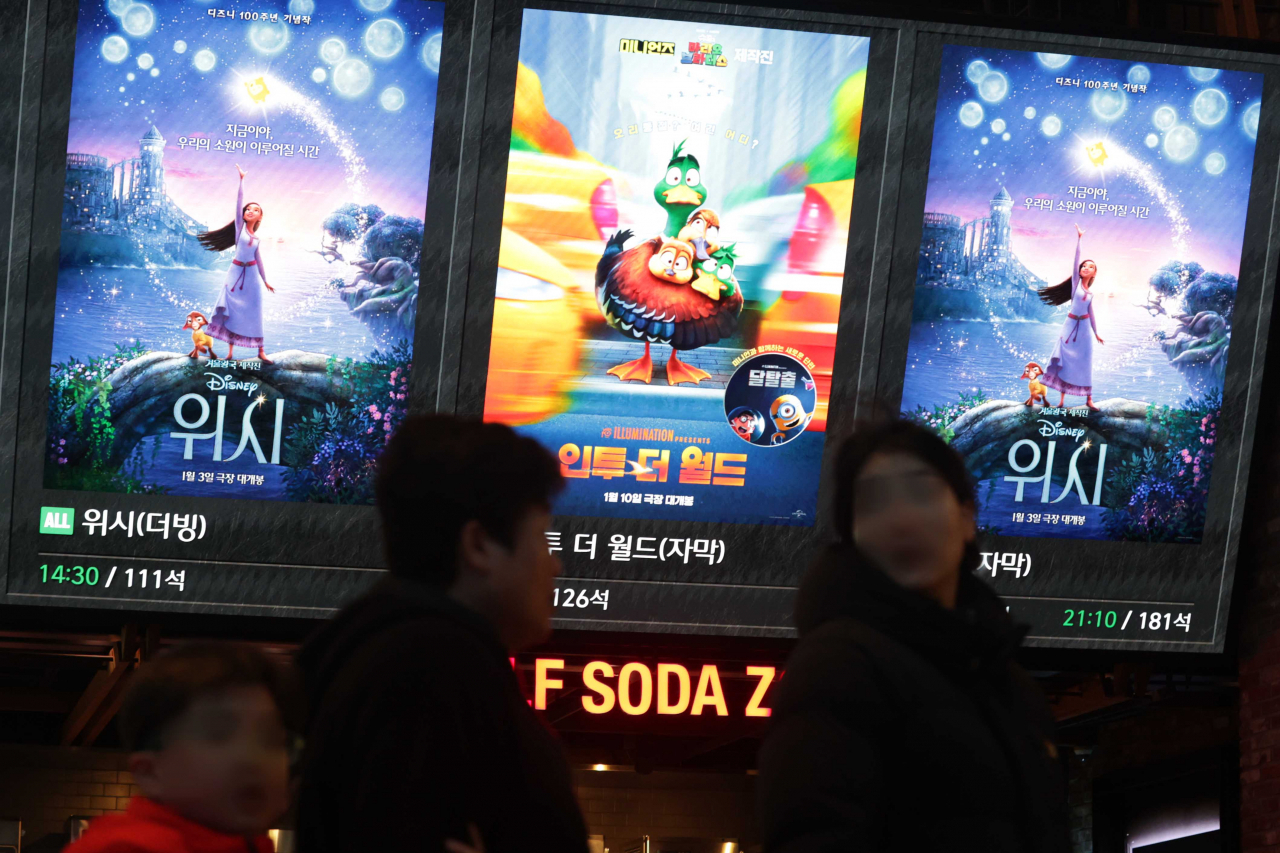 |
Moviegoers visit a local multiplex chain CGV in Seoul. (Yonhap) |
The Culture Ministry’s plan to mandate a grace period of possibly up to six months before films that received government funding are released on streaming platforms like Netflix is being met with mixed reactions by the local entertainment industry, including film distributors and streaming platform operators.
In November, the ministry temporarily instituted a “holdback” period for films with a production cost of over 3 billion won which received state funding, requiring the distributors to wait four months after the theatrical release before making them available to streaming platforms. The main reason for the "holdback" period was to revive the struggling film industry after the pandemic.
Authorities are planning to fine-tune the details of such a “holdback” system this month through discussions with industry insiders. It is very likely that the grace period will be extended up to six months, according to the Culture Ministry.
While the ministry said such an agreement should be reached voluntarily with the industry without binding force, the local entertainment industry was split over such a move.
“It is necessary for films to stay in the theater for a certain period to attract moviegoers, which will be a win-win strategy for distributors, multiplex chains and even production firms,” an official at a local film distributor told The Korea Herald.
“The major source of profit for the film industry is cinema. The way films are distributed should fall under a concrete, state-supervised system to boost the overall entertainment industry,” he added.
But concerns may arise for box office failures, which will be held back for a designated period and miss the optimal time to attract attention on streaming platforms.
Meanwhile, local streaming platform operators predicted any “holdback” system would restrict their subscribers’ rights to select what to watch.
“Our subscribers wish to watch various series, shows and films whenever and wherever they want. We’re worried that our subscribers will have limited choice on our service,” said an industry insider who declined to be identified, adding that viewers’ interest in Korean films may diminish if the movies are not released immediately on streaming platforms.
Streaming platform users also voiced similar concerns.
“I don’t have the time to go to the cinema but still want to catch the latest blockbusters. I think what I pay OTT for is to be able to enjoy the latest movies as well. I can wait up to three months but six months is too long,” Lee Eun-jung, 34, told The Korea Herald. She said she recently watched “Concrete Utopia” via Netflix when it was uploaded on Dec. 5 last year. The theatrical release was in August.
 |
“Concrete Utopia” on Netflix (Netflix) |
Experts argue that the government should approach the matter with caution.
“A holdback system is needed to prevent shaking up the Korean film industry’s very existence. The government should address the issue from a multifaceted perspective and come up with solutions that take into account exceptional situations as well,” said Choi Jung-hwa who represents the Producers Guild of Korea.
“Mid- and small-scale films that can’t can't compete against tent-pole films should be given a chance to make a profit on different platforms. If they are subjected to a holdback system, such films will be forgotten and, as such, there should be a related measure to prevent that from happening,” said Kwon Young-rak, a member of a Korean Film Producers Association committee.







